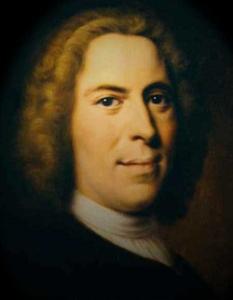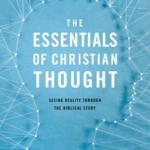What Happens When Popular Culture Takes on Christianity
I admit that I watch a lot of television. But don’t judge me; it hasn’t stopped me from writing a lot of books, numerous articles, and effectively teaching Christian theology for forty years.
I have complained here before about popular entertainment culture and how it so often distorts the truth about Christianity. Think about author Dan Brown, for example. If he had read any of the church fathers or even Celsus, the Roman critic of Christianity and Christians (2nd century), he would know that early Christians, long before Constantine, worshiped Jesus as God and believed in the Trinity.
The other evening my wife and I tried watching a few early episodes of a Dutch detective series (on Masterpiece Theater) called Van der Valk. This two-part episode included much talk about Count Nicholas Ludwig von Zinzendorf! That caught my attention. I have studied Zinzendorf and the Herrnhutters, the Bohemian or Moravian Brethren, a major part of the Pietist movement of the 18th century.
The program referred to Zinzendorf as the leader of an obscure religious cult and more than implied that he and his followers were obsessed with sex. They (the characters in the program) included Zinzendorf as an esoteric eroticist—together with, for example, the mysterious figure often known as Saint Germain.
There is, of course, a kernel of truth in what the writers said about Zinzendorf, but to categorize him as a leader of an “obscure religious cult” and an esoteric eroticist is bizarre.
Zinzendorf was a Lutheran bishop as well as a member of a noble German family in Saxony. He was highly educated and intensely religious. I have called him “the noble Jesus Freak” in The Story of Christian Theology and in Reclaiming Pietism.
He was obsessed with “the wounds of Christ,” but did not worship them, as the program claims, and there was nothing erotic about that. I’d call Zinzendorf a forerunner of the Romantic Movement, not a esotericist. There was nothing occult about him or his teachings or practices.
For you Zinzendorf scholars out there, yes, I know he was overthrown as the bishop of the Moravian Brethren in what what came to be known among them as “the great sifting.” Still, and nevertheless, he did not worship the wounds of Christ and nothing about his teachings could possibly someone (as in the program) to cut into the side of an innocent victim.
I found it curious (coincidental?) that Zinzendorf, who has been largely forgotten except by Moravians and scholars of church history, came up twice in one month. I wrote about his influence here earlier this month (January, 2024) and then this.
I wonder what the Moravian Brethren both in Europe and America think about this episode of the Dutch detective series Van der Valk? I’m not Moravian, but I found it insulting and highly objectionable, but typical of the way Christianity is often mis-portrayed in popular culture.
If you are interested in church/Christian history, look into Zinzendorf and the Moravian Brethren. He was not an erotic esotericist and they were not an “obscure religious cult.” However, both are very interesting and a good example of what I call “the trickle down effect” of church/Christian history—that we are often influenced by Christians of the past we have never heard of and because we don’t study church history we end up re-inventing the wheel.
*Note: If you choose to comment, please keep it relatively brief (no more than 100 words), on topic, addressed to me, civil and respectful (not hostile or argumentative), and devoid of pictures or links.*














